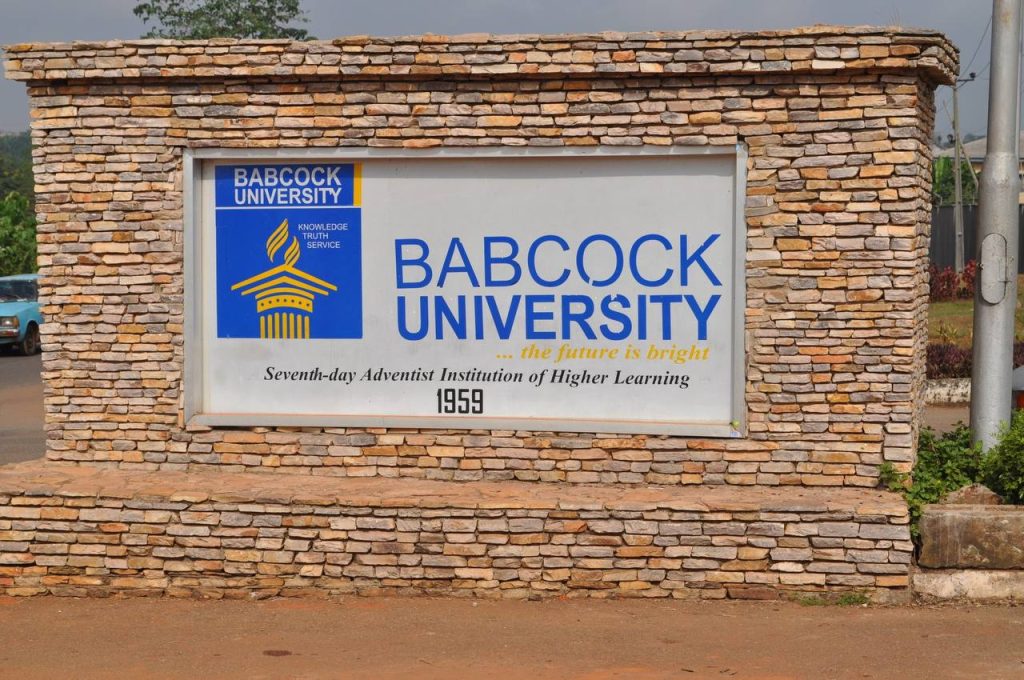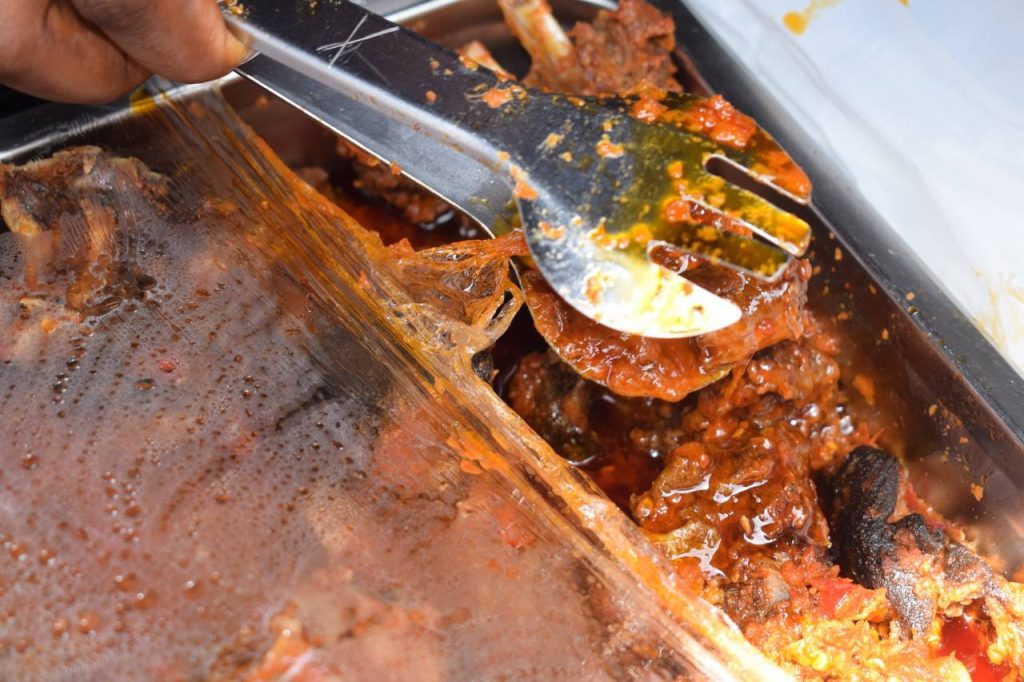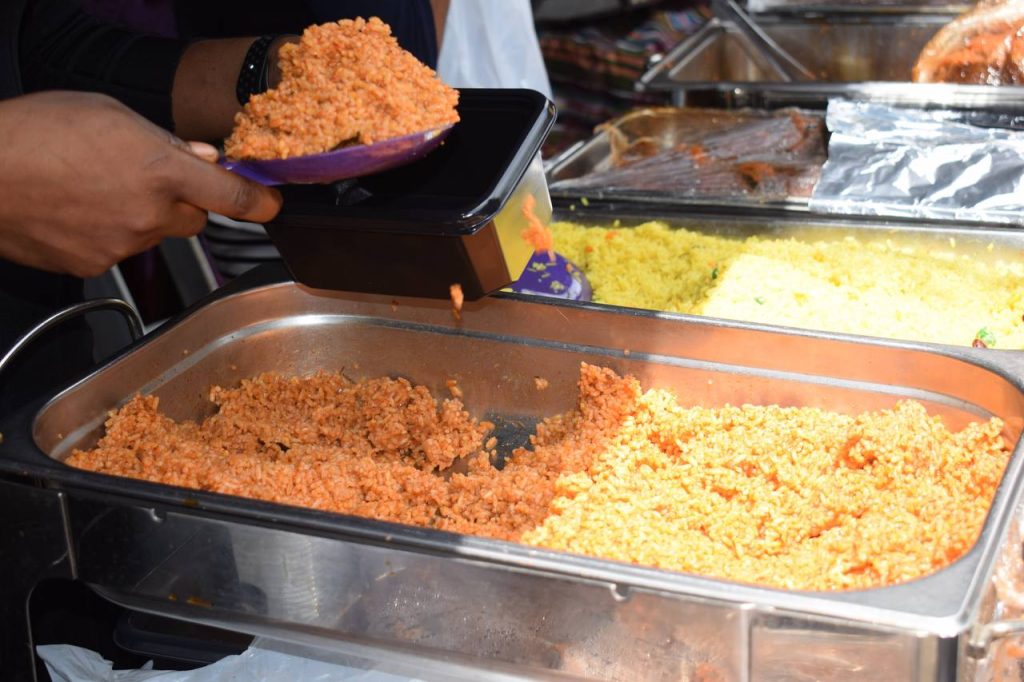SURVIVING IN BABCOCK UNIVERSITY, WHERE MEAT & FISH AREN’T SOLD

I was today years old when I found out students of Babcock University located in Ogun State, Nigeria are by school rules and regulations not allowed to eat meat or fish. I had to speak to a few students and ex-students to fully understand this particular policy and how they cope with it. My first informant is a graduate of the university (let’s call her Nancy), who indeed confirmed it and also went ahead to explain how it works.
Nancy gave me the full picture to what was initially a sketchy piece of information. According to her, consumption of meat and fish of all kinds are discouraged by the school administration, hence it is prohibited from being sold within the school. Babcock operates a strictly plant-based diet for students, and is easy to implement since students pay for their meals alongside tuition. Meals provided by the school are strictly vegan, also independent food vendors who own stores in the Babcock University Students Association (BUSA) Complex, are not allowed to sell meat or fish to students of the university. Interestingly, other institutions like the Babcock University Teaching Hospital and the school’s Guest House which are both directly affiliated to the school but cater to a broader market that include visitors to the school and patients in the hospital, make provision for meat and even fish in their meals, these meals are also available for students to buy and eat.
On explaining the reason behind this policy, she said, “Babcock University is an institution of The Seventh Day Adventist church and the church believes that eating plant-based food is good for one’s health. It is the church’s policy that every institution directly linked to the church should adhere to a vegan diet. The backdrop of this belief can be traced back to the very beginning, the story of Adam and Eve, where God created the first man and woman and gave them a garden filled with fruits and vegetables for their nourishment.
“Another example is the biblical story of Daniel and his three friends, the Hebrew boys who refused to defile themselves with a portion of the king’s meat and wine but requested vegetables instead of eating the king’s meal. Daniel and his friends ate vegetables and drank water for 10 days as opposed to eating large pieces of meat from the king’s meal like the others, at the end of 10 days, it was recorded that the Hebrew boys looked healthier than the others who ate and feasted on the king’s meal,” she explained.

According to Nancy, this vegetarian policy has proven to be very healthy and helpful, exposing her to variety of food combinations that she now enjoys. “Yes, Tofu, for one, the cafeteria has been creative with Tofu, we have stuff like the Tofu suya, which is spicy, delicious and creative. The fact that one doesn’t necessarily have to eat meat or fish every day, there exist so many alternatives. We can eat vegetables, coleslaw, salads, mushrooms, eggs, the list goes on. I’ve become open to a lot of healthy food combinations, especially with the economic situation.
“Today, I have a variety of options to eat from – as-long-as it is healthy. We have vegetarian burgers. Before BU (Babcock University) one would think Shawarma and Burger without meat were inedible, but I found them tasty and it’s more like a life hack now, with the price of meat and fish in the market, these food combinations have come in handy. It has also been very helpful, especially with reducing my visits to the hospital and making me a healthier person by adhering to a healthy diet. Formerly, I had no idea certain food items were also available in Nigeria, some legumes and items like beetroot which I thought were only available in European countries, at BU, I realized that some of these food items were cultivated and harvested in Jos. So yes, the entire experience was eye-opening and enlightening.”
Another ex-student who evidently did not adapt to the meal situation said she found her way with different alternatives while navigating the system. “I won’t explicitly say meat and fish is prohibited at Babcock University, we pay for food, right, so it is excluded from school meals, but we have a Guest Houses where it’s sold, parents can bring meals for you with meat. It’s not like it’s a taboo, it’s just not part of their menu because they operate a vegetarian diet, they don’t serve meat, just Tofu (made from soya beans) and eggs. If you wish to order food or bring your meals from home, they won’t restrict you from eating meat.
“Did I know about the policy before enrolling (to study in Babcock University), yes I did, My elder brother was there before me, so I had firsthand knowledge before I got admitted, it wasn’t new to me… Did I adapt? (Laughs) No, I did not adapt, my parents brought me home-cooked meals with meat whenever they came to see me, but at times when I didn’t have home-cooked meals or alternatives, I had no choice but to ‘adapt.’ I had my meals without meat, I got eggs, we had mushrooms in our soups for swallow, if you can’t eat eggs or tofu, you can have mushrooms, it wasn’t exactly a hard situation to navigate.”
As someone who evidently preferred her meals with meat, she confirmed that she didn’t have to do anything illegal or prohibited to eat her meals with meat. “No, there was nothing illegal to do, if you order food today, you get to sign it in at the gate, document the source of the food, even meals from your parents, you’d sign for it at the gate and confirm it’s from your parents. But in a situation where you’re getting food from outside, you would call your parents and they would talk to the security staff to let you in with your food, I don’t know what the situation is right now, I graduated a while back and this was how it was then. The meat situation isn’t that much of a big deal as people outside project it to be, honestly.”

A final-year student of the school who doesn’t enjoy Tofu also had something to add to what The Bug had gathered on the dynamics of signing in meat/fish and illegal vendors of the products in school. “In a situation where you have to bring your meat from outside the school, you go through a security process which includes going to the school security service and clearing whatever you’re bringing in, especially if it’s a lot. Most times students don’t go through this process cause it’s a lot, so they just inform the security personnel in front of the hostels to let them in with their meals. The way they treat boys is different from the treatment the girls receive, for girls they allow them to bring in specific things to their halls but for boys, it’s a whole different story.
“Students also sell illegal stuff like Kilishi (beef jerky), Shawarma (which contains meat), meat pie, etc. They sell prohibited stuff, although it was more pronounced before, nowadays, the security is tighter, they frequently carry out security searches on students, especially in the night time.”
While a vegan diet may initially seem challenging, students of Babcock University find ways to survive. Talking about survival, it will appear to be a smart way to cut cost on food in this difficult economy. Just imagine having Eba, Egusi soup and eggs of lunch, and then doing Fried rice and mushrooms for dinner. Definitely a banger!





